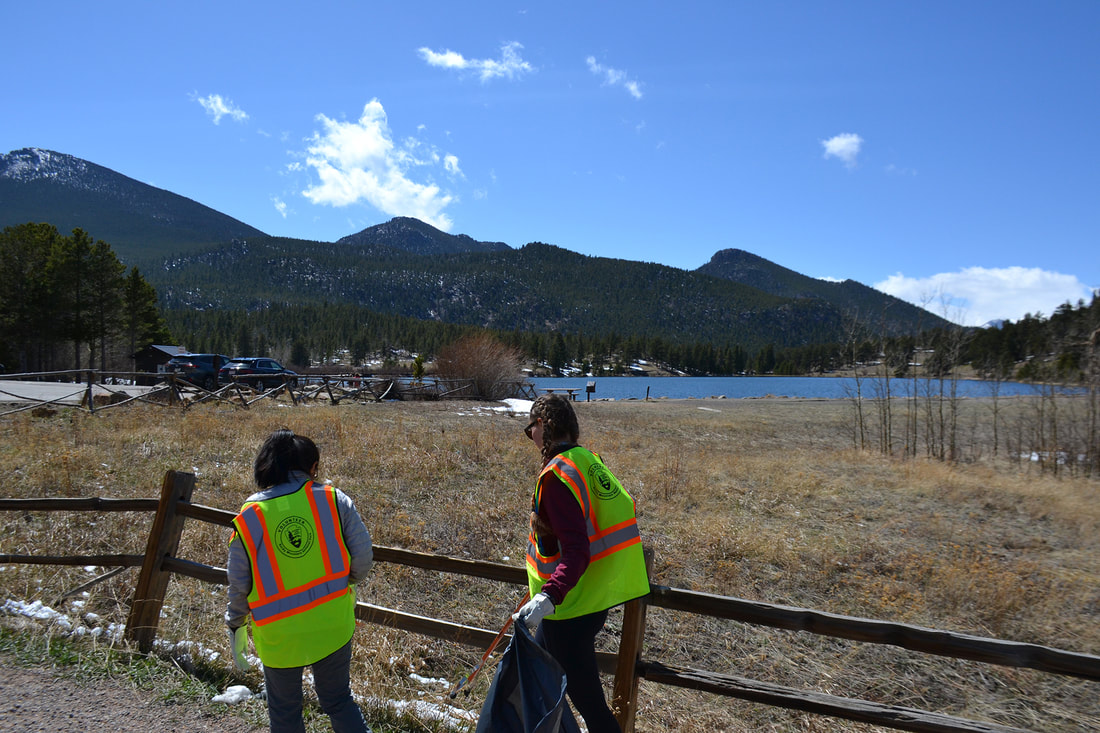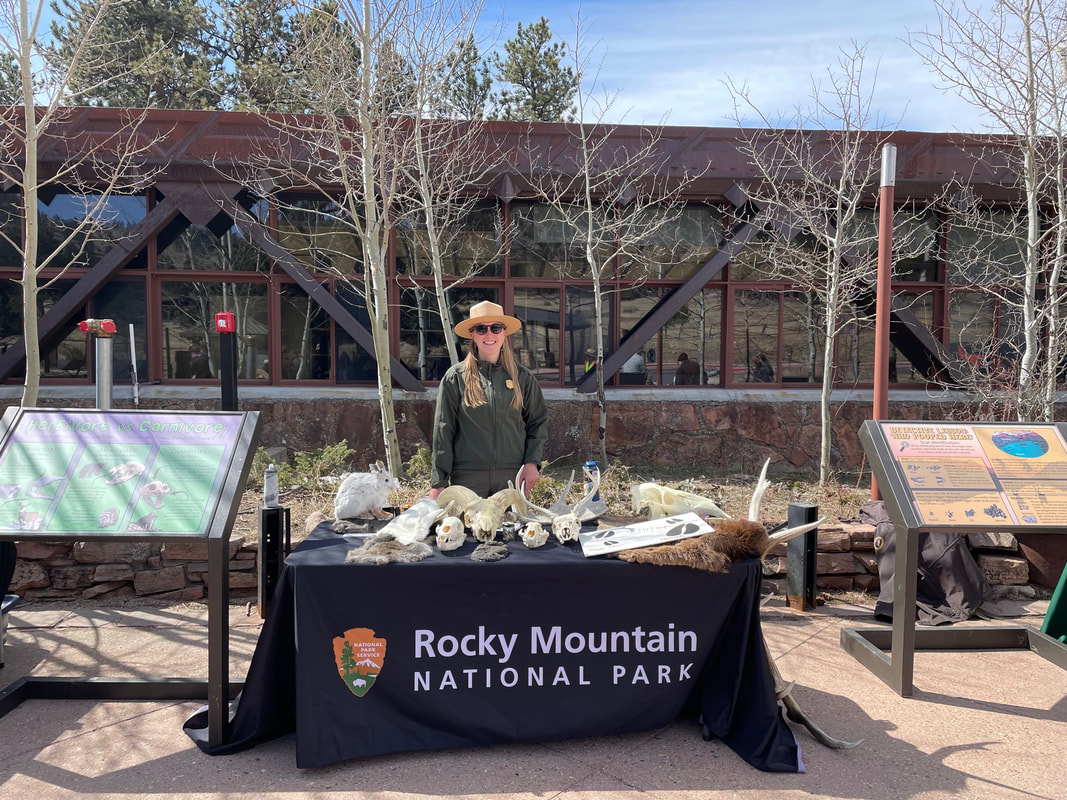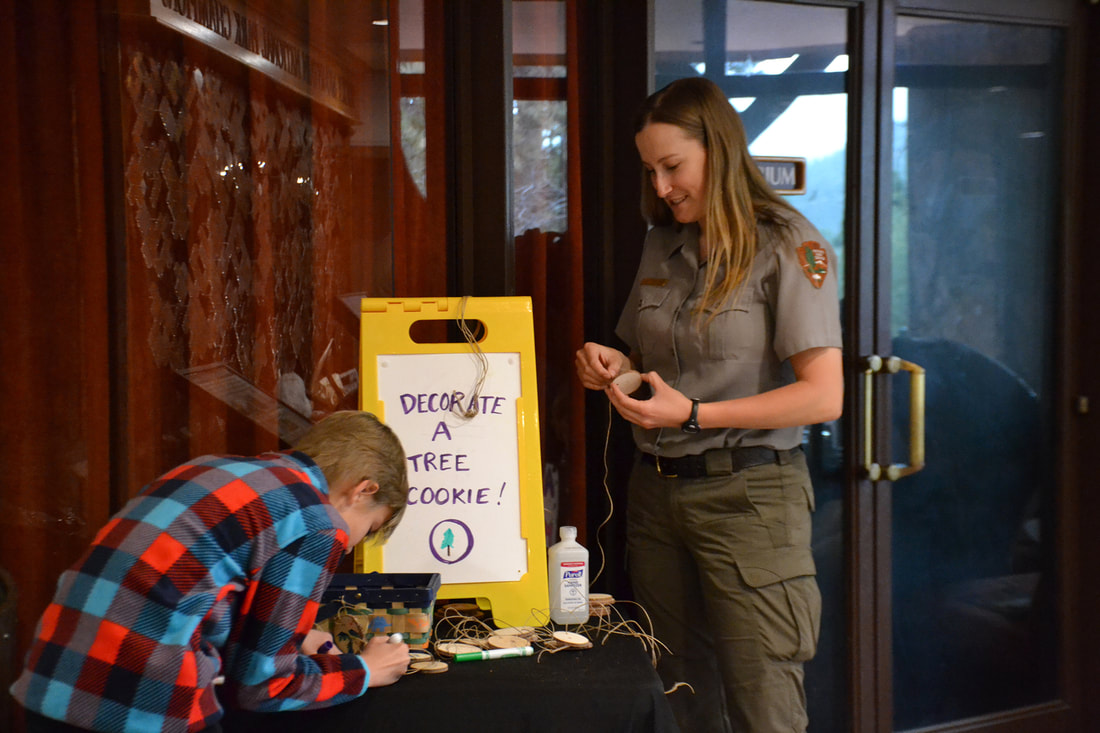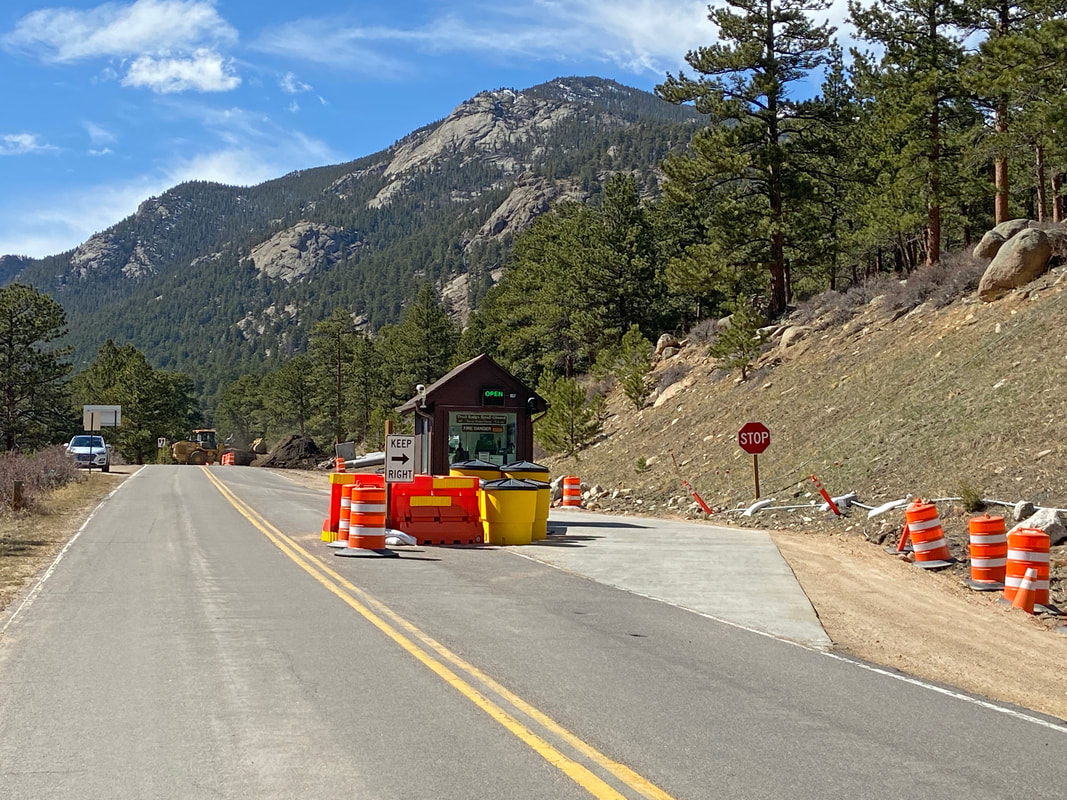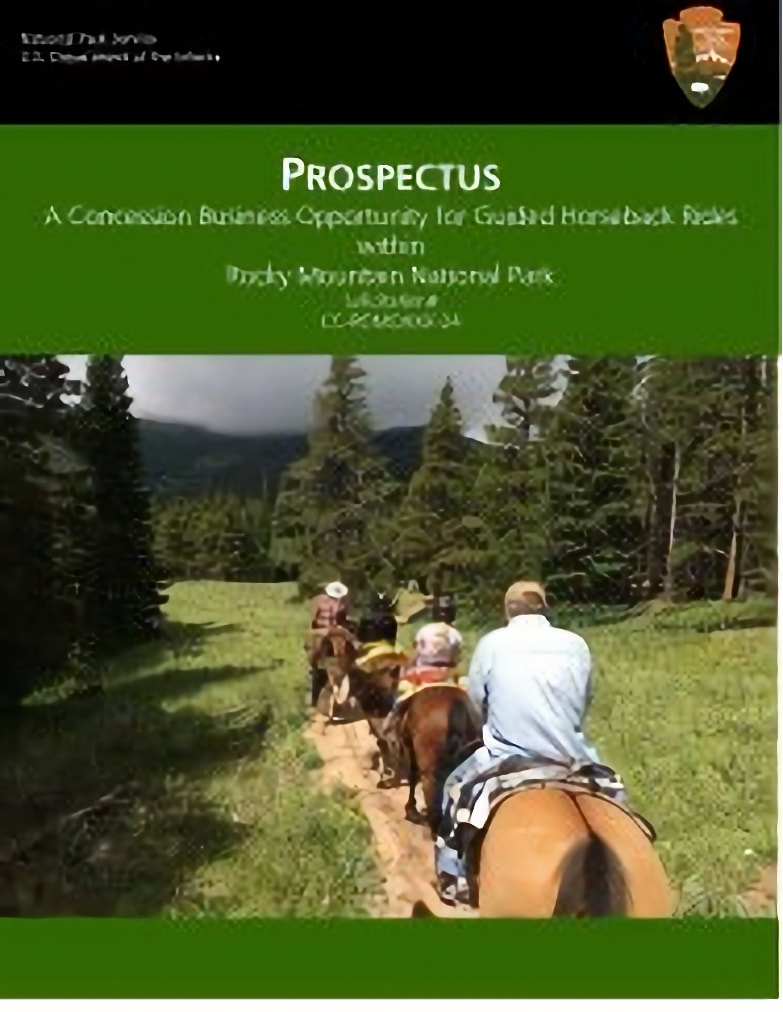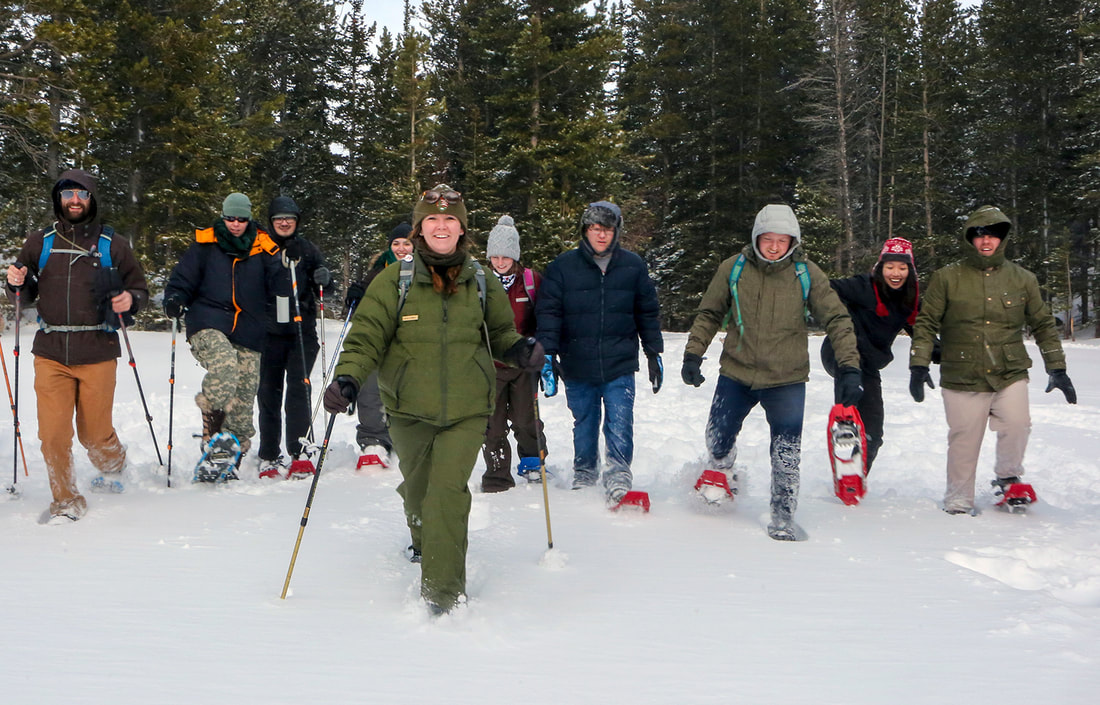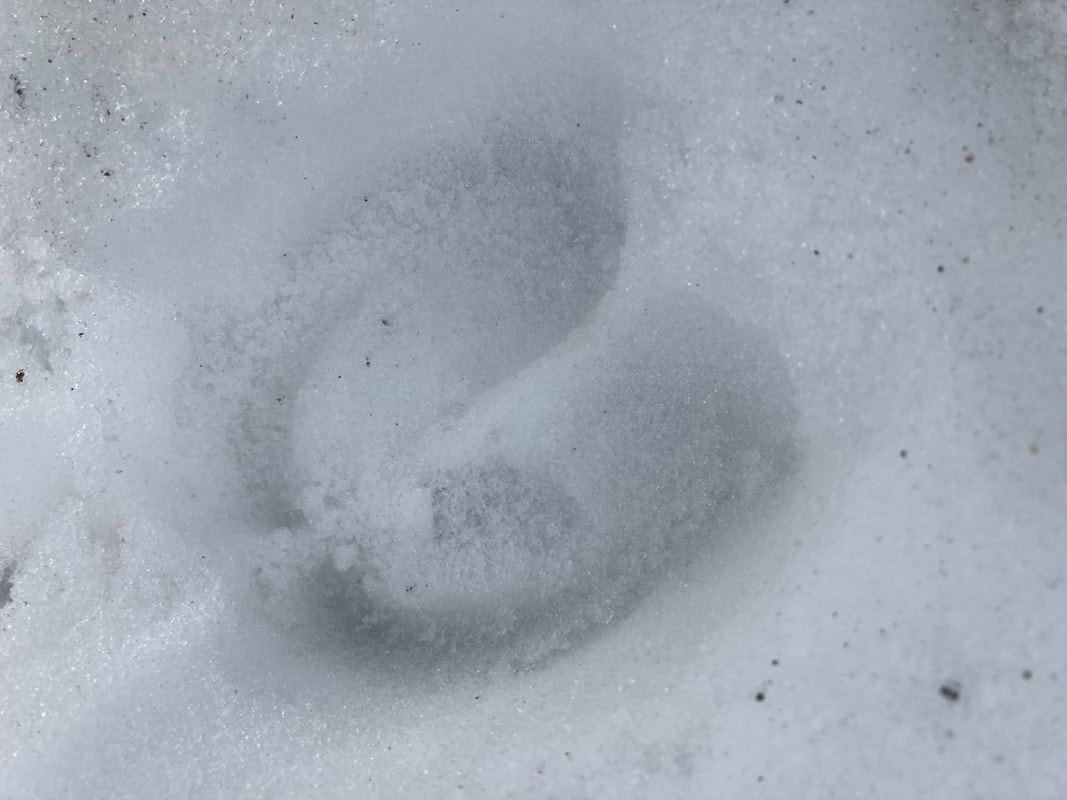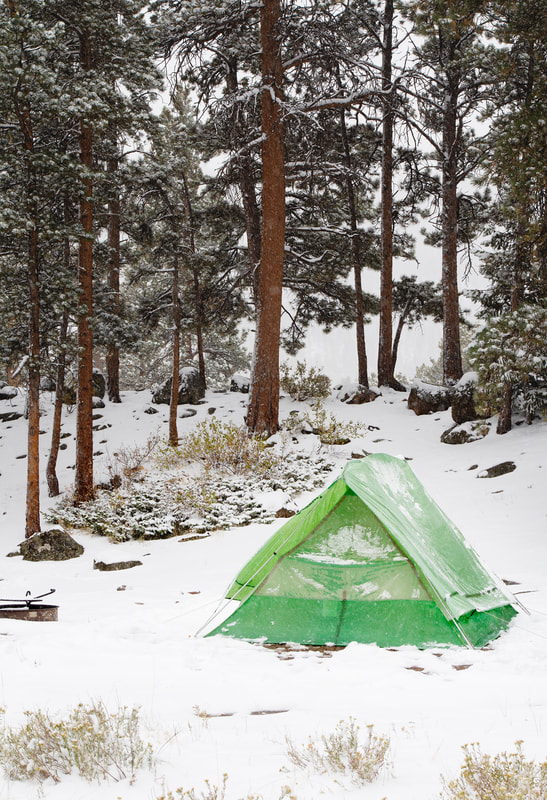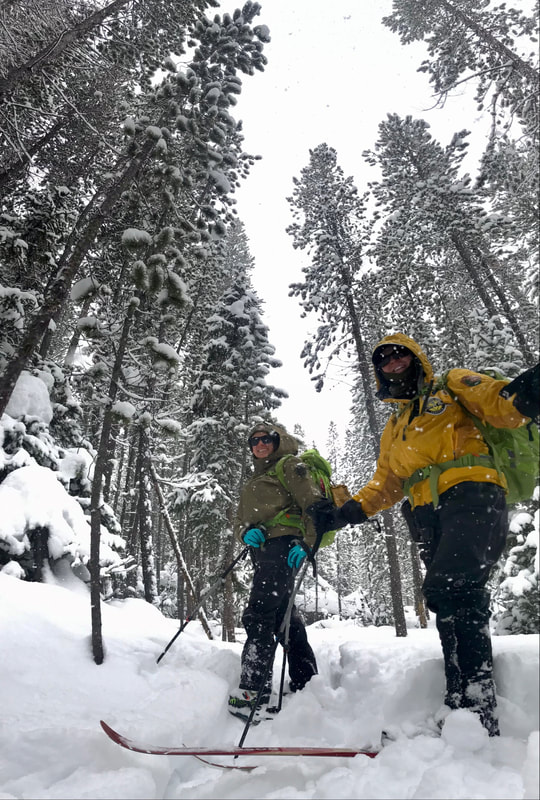|
RMNP UPDATE - May 5, 2023 On Monday, May 1, park rangers were notified of a missing man in the Wild Basin area of Rocky Mountain National Park. Kevin Sypher, 56, was last seen on Sunday afternoon, April 30, in the Sandbeach Lake parking area near the Wild Basin Entrance Station.
Mr. Sypher was first reported missing from Parker, Colorado on Thursday, April 27 by Parker Police. He was located on Saturday, April 29 in the Denver area and reunited with family. On Sunday, April 30, he was with a family member near the Wild Basin Entrance in Rocky Mountain National Park when he is reported to have willingly walked away from a vehicle he was traveling in. On Monday, May 1, Rocky Mountain National Park was notified that Sypher was missing when a park ranger encountered a group of people searching for an individual. Park rangers started an investigation and began initial search efforts. From the initial investigation on May 1, park rangers learned that a man matching Sypher’s description was seen by park staff the afternoon of Sunday, April 30, travelling on foot near Copeland Lake walking west on the Wild Basin Road. Due to this information, search efforts continued along the Wild Basin Road and river corridor and up the summer trailhead. On May 3, Rocky Mountain National Park Search and Rescue team members were assisted by a dog team from Front Range Rescue Dogs and search efforts were concentrated around the summer trailhead and up to Copeland Falls. During search efforts, a park visitor who regularly hikes in this area mentioned seeing a man matching Kevin’s description near the Wild Basin summer Trailhead on Monday, May 1. Kevin Sypher is 6’2,” 180 pounds with gray hair and brown eyes. He was last seen wearing a gray hooded sweatshirt, blue baseball cap, blue jeans and cowboy boots. Active search efforts have been suspended. Patrols will continue to occur in the search area, and further actions may be considered if there are any further clues or information provided. The incident is under investigation and no further information on the investigation will be released at this time. If you have information that could help investigators, if you may have seen Kevin Sypher, or if you were in the Wild Basin area since April 30, please contact us. You don't have to tell us who you are, but please tell us what you know. CALL or TEXT the National Park Service Investigative Services Bureau Tip Line 888-653-0009, ONLINE form go.nps.gov/SubmitATip or EMAIL [email protected]
0 Comments
Rocky Mountain National Park Announces Summer Seasonal Hiker Shuttle Operations Begin May 264/29/2023 RMNP UPDATE - April 18, 2023 Rocky Mountain National Park will operate the Hiker Shuttle during the 2023 summer season beginning on Friday, May 26. 7-day service will operate May 26 through September 4. Beginning on September 9, Saturday and Sunday only service will continue through October 22.
The Hiker Shuttle provides bus service to passengers departing the Estes Park Visitor Center and going to RMNP’s Park & Ride Transit Hub, located on Bear Lake Road. This bus does not provide service to any other stops. At Park & Ride, Hiker Shuttle riders will transfer to the Bear Lake or Moraine Park shuttles to reach destinations and trailheads located along the Bear Lake Road Corridor. All shuttle riders will need two things: a reservation for Hiker Shuttle Tickets and a park entrance pass. Reservations for Hiker Shuttle Tickets will be available online at Recreation.gov beginning on May 1 at 8 a.m. MDT for the dates of May 26-June 30. Reservations can also be made using the Recreation.gov mobile app or by calling the Recreation.gov reservation line at 877-444-6777. Rolling windows for future months begin at 8 a.m. MDT on June 1. Individuals may reserve one Hiker Shuttle reservation per day and a reservation is good for 1 to 4 Hiker Shuttle Tickets. All passengers will need a Hiker Shuttle Ticket, regardless of age. There is a $2 processing fee for each reservation. Additional reservations will be available online at Recreation.gov beginning at 5 p.m. the night before a chosen arrival date. Space on the bus is limited, please only reserve the number of seats needed. For the full Hiker Shuttle departure and arrival schedule and a list of frequently asked questions, visit the park’s website at https://www.nps.gov/romo/planyourvisit/shuttle-buses-and-public-transit.htm. When returning to Estes Park, passengers can board any Hiker Shuttle bus throughout the day. The last shuttle will depart from RMNP’s Park & Ride Transit Hub at 6 p.m. Remember to plan ahead - the last bus of the day will be crowded. Passengers are advised to plan their day in the park accordingly and return to Park & Ride well before 6 p.m. If you miss the last bus of the day, there are no other buses or public transit back to Estes Park. For more information on Rocky Mountain National Park, please call the park’s Information Office at (970) 586-1206 or visit our website at www.nps.gov/romo. RMNP UPDATE - April 18, 2023
Celebrate National Park Week, Earth Day, and National Junior Ranger Day at Rocky Mountain National Park. What is National Park Week? This is a week-long celebration of our national parks that begins on Saturday, April 22 and continues through Sunday, April 30. National Park Week kicks off with a fee free day on Saturday, April 22. Park entrance fees will be waived. Camping and all other administrative fees will still be in effect. Rocky Mountain National Park's activities include: On Saturday, April 22 join us to celebrate Earth Day. Join NPS and the Rocky Mountain Conservancy staff on the east side of the park at the Beaver Meadows Visitor Center from 10 a.m. to 3 p.m. and enjoy informational booths and interactive activities for all ages. Activities include:
Activities include: On the west side of the park, join NPS staff at the Kawuneeche Visitor Center from 10 a.m. to 2 p.m. and participate in fun and interactive activities, including:
For more information on Rocky Mountain National Park, please call the park’s Information Office at (970) 586-1206 or visit our website at www.nps.gov/romo RMNP UPDATE - April 18, 2023 Construction began in early November for a new and improved entrance station at the Fall River Entrance to Rocky Mountain National Park. The Fall River Entrance is one of two major entrance stations on the east side of the park and is located on U.S. Highway 34, just inside the park boundary. Initially, it was anticipated that the project would be completed by late June. However, due to unforeseen site conditions and utility coordination challenges the revised schedule is for completion in late fall.
The Fall River Visitor Center and the Rocky Mountain Conservancy Nature Store are open during this construction project. The Gateway Gift Shop and Trailhead Restaurant, located next to the visitor center, are also open and welcoming visitors. During this major construction project, only one lane at Fall River Entrance is operational to enter the park and one lane to exit. Park visitors are encouraged to avoid the Fall River Entrance and use the Beaver Meadows Entrance. During this major project, park visitors should expect extended wait times at both major east side entrance stations. Originally designed for summer operations nearly 60 years ago, the facilities at the Fall River Entrance Station no longer meet the safety or operational needs of the park. When the entrance station was designed, the park had approximately one and a half million annual visitors. By 2019, annual visitation had almost tripled, to over four and a half million annual visitors. Improvements are needed to improve visitor access and convenience, reduce traffic congestion, and provide a safe and efficient space for park employees. RMNP Update: March 22, 2023 Rocky Mountain National Park staff has announced the Prospectus Release for a business opportunity to provide seasonal guided horseback rides within the park. The released prospectus outlines this business opportunity for exterior liveries, describes the 14 contracts, and provides details on how to submit a responsive proposal.
Services under the new contracts will continue current horseback ride operations. Each contract has an assigned allocation of trails and limits on the number of horses. Services under the new contracts are expected to begin January 1, 2024, and each new contract will be for a term of 10 years. Concessions contracts are developed and issued under the authority of the Concessions Management Improvement Act of 1998, P.L. 105-391, and its attending regulations in 36 CFR §51. All interested parties are encouraged to apply and submit a responsive proposal. The prospectus for these new opportunities is being advertised at https://sam.gov/ The prospectus can be found online at https://www.nps.gov/subjects/concessions/prospectuses.htm Anyone who plans to submit a proposal in response to this solicitation, including existing concessioners, must notify Jennifer Parker, Commercial Services Program Lead, via email at [email protected] no later than 4 p.m. MST on May 23, 2023, by submitting an Intent of Notice to Propose. The National Park Service will not accept proposals from entities that do not provide notice on or before May 23, 2023. Responsive proposals must be received by June 27, 2023. RMNP UPDATE - Feb. 27, 2023 Rocky Mountain National Park will hold a public comment period for an Environmental Assessment (EA) on the proposal to construct new employee housing in the park. The housing would replace structures destroyed in the East Troublesome Fire of 2020. Public comments on this EA will be open on the park’s Planning, Environment, and Public Comment (PEPC) website at https://go.nps.gov/parkplanning/romo/replacementhousing from Feb. 17 through March 5, 2023.
The structures lost in the fire provided housing for 22 seasonal employees. The proposed new housing complex would accommodate the same number of employees. Providing housing is critical for recruiting and retaining seasonal staff to work on the west side of the park. The employees work mid-April through mid-October and provide essential visitor services and carry out critical park operations. The positions include park rangers, park guides, fee and campground staff, trail crew members, buildings and utilities staff and custodians. The proposed housing complex would be located near the existing park housing area on the west side of the park. It would consist of two dormitories, 10 residential units, three recreational vehicle sites, and a residential support facility that would include laundry, showers, and a communal kitchen. The project would include the construction of new utility systems, replacement of a water well and associated infrastructure at the existing park housing area, and removal of destroyed utilities infrastructure. Disaster supplemental funding is expected to pay for the proposed project. On October 21, 2020, the East Troublesome Fire made a run of 18-miles and over 100,000-acres in Grand County, Colorado. Rocky Mountain National Park lost numerous structures, including 18 historic buildings at the former Green Mountain-Onahu seasonal housing area, 3 RV sites and all associated utilities. The East Troublesome Fire was the largest fire in Rocky Mountain National Park’s 108-year history. It burned over 21,000 acres within the park. The park held a virtual public meeting in July of 2022. To learn more about this proposed project, visit https://www.nps.gov/romo/getinvolved/proposal-to-construct-new-housing-destroyed-by-the-east-troublesome-fire.htm Public comments on this proposed project can be submitted at the following web address: https://go.nps.gov/parkplanning/romo/replacementhousing. Comments may also be submitted via mail to: Rocky Mountain National Park Office of the Superintendent 1000 US Hwy 36 Estes Park, CO 80517 Please be advised, before including your address, phone number, e-mail address, or other personal identifying information in your comment, you should be aware that your entire comment – including your personal identifying information – may be made publicly available at any time. Although you can ask in your comment to withhold your personal identifying information from public review, we cannot guarantee we will be able to do so. For more information on Rocky Mountain National Park, please call the park’s Information Office at (970) 586-1206 or visit our website at www.nps.gov/romo. RMNP Update - February 13, 2023 Each year, to protect breeding and nesting sites of raptors (also known as birds of prey), Rocky Mountain National Park officials initiate temporary closures in the park. Raptors that are protected include multiple species of hawks, owls, golden eagles, and peregrine falcons.
To ensure that these birds can nest undisturbed, specific areas within the park are closed temporarily to public use during their breeding and nesting season. These areas are monitored by park wildlife managers. Raptor closures begin on February 15 and continue through July 31, if appropriate. These closures may be extended longer or rescinded at an earlier date depending on nesting activity. A closure is in place in the Loch Vale area which includes Cathedral Wall. The areas above the Loch Vale-Sky Pond Trail are closed to off trail travel. In Lumpy Ridge, area closures include Checkerboard Rock, Lightning Rock, Batman Rock, Batman Pinnacle, Sundance, Thunder Buttress, The Parish, Bookmark Pinnacle, The Left Book, Bookmark, Twin Owls, Rock One and the Needle. These closures include the named formations. Closures include all climbing routes, outcroppings, cliffs, faces, ascent and descent routes and climber access trails to the named rock formations. Check the park’s website at https://www.nps.gov/romo/raptor-closures.htm for all details on specific raptor closure areas, including maps. The National Park Service is committed to preserving birds of prey. If nest sites are located or territorial behaviors such as aggressive divebombing/vocalizing or birds fleeing nest sites due to human disturbance are observed, please report the general location to [email protected]. The same cliffs that are critical for raptors also appeal to climbers. The cooperation of climbing organizations and individuals continues to be essential to the successful nesting of raptors in the park. For further information on Rocky Mountain National Park, please visit www.nps.gov/romo or call the park’s Information Office at (970) 586-1206. RMNP Update, 2/3/2023 For many, winter is their favorite time of year to visit Rocky Mountain National Park. The park is less crowded, yet alive with the beauty of the season. Weekends are busier than weekdays. For those who are prepared, winter is an enchanting time to explore RMNP. Snowshoeing is a fun, easy-to-learn activity and offers a new way to see nature in winter. RMNP offers ranger-led snowshoe walks on both the east side (Estes Park) and west side (Grand Lake) of the park. Snowshoe walks are offered through mid-March, depending on snow conditions. Participants must provide their own snowshoes. Don’t own your own gear? Rental opportunities are available in nearby communities outside of the park. Join a Ranger-led Snowshoe Walk The ranger-led Beginner Snowshoe Walk is a two-hour exploration of the subalpine forest. No previous snowshoe experience is required, but the walk is considered moderately strenuous. Participants should have a baseline fitness level that allows them to snowshoe approximately one mile over hilly terrain at high elevations. Participants must be 8 years or older and MUST wear waterproof boots. For more information, visit www.nps.gov/romo/planyourvisit/ranger-led-snowshoe-walks.htm. Reservations are required for all ranger-led snowshoe programs. There is no additional fee beyond the regular park entrance fee to participate. On the east side of RMNP (near Estes Park), snowshoe walks are offered every Tuesday at 12:30 p.m. and reservations can be scheduled up to seven days in advance by calling 970-586-1223. On the west side of RMNP (near Grand Lake), snowshoe walks are offered every Saturday and Sunday at 1:00 p.m.; reservations can be scheduled up to four days in advance by calling 970-627-3471. Are you a teacher interested in bringing your class to Rocky this winter? Ranger-led educational snowshoe programs are offered to organized school groups. To learn more and to schedule a field trip on either the east or west side of Rocky Mountain National Park, visit the park’s webpage at www.nps.gov/romo/learn/education/rangerguided.htm. Become a Track Scene Investigator! Have you ever been out hiking and wondered what animal made a track in the snow? If so, join our new east side (Estes Park) ranger-led program titled “Track Scene Investigator.” This program will be offered on the following Sundays at 1:00 pm (February 5, February 19, March 5, and March 19). Participants will meet your park ranger guide at the West Alluvial Fan Parking Lot. This program is free and designed for visitors of all ages. No reservations are required. This program will be taking place outside, so be prepared for weather and winter conditions; snowshoes are recommended but not provided. To learn more, visit https://www.nps.gov/romo/planyourvisit/ranger_led_activities.htm. A variety of winter and springtime programs are also offered through the park’s non-profit partner, the Rocky Mountain Conservancy (RMC). Some of these programs are free and some charge a fee to participate. To see their program schedule and to learn more, please visit the RMC website at https://rmconservancy.org/upcoming-events/. Go Sledding! Sledding is another wintertime activity fun for all ages. The only place in RMNP where sledding is allowed is at the Hidden Valley Snowplay Area, located on the east side of the park approximately 7 miles from the Beaver Meadows and Fall River entrances. Facilities at Hidden Valley include a warming hut (open on weekends), and flush restrooms. For more information, visit https://www.nps.gov/romo/planyourvisit/plan-your-winter-springtime-visit-to-rocky.htm. Take a Winter Camping Trip If prepared, winter camping can be a fun getaway. Approximately 70 campsites are available in Moraine Park Campground. Winter campsites are first come, first served and the fee is $30 per site, per night. For more details, visit https://www.nps.gov/romo/planyourvisit/camping.htm. If interested in winter wilderness backpacking camping trips, contact the park’s Wilderness Office at 970-586-1242. Permits are required for all overnight camping in the park. Winter Safety Tips
Your safety is your responsibility; know your limits and make sure that everyone in your group is prepared for the anticipated weather and conditions. Travel across and under steep slopes is not advised unless all members of your party have the education, safety equipment, and experience to make informed decisions about traveling in avalanche terrain. For the latest avalanche conditions, visit http://avalanche.state.co.us. Trip planning in winter is critical! Parking lots at popular destinations like Bear Lake, Glacier Gorge, and Hidden Valley often fill on weekends. Trail navigation in winter can present difficult challenges. Trails in the park are not marked for winter use, so route-finding skills are necessary. Signs and trails can be buried beneath snow and difficult to follow. Never follow other people’s tracks, they can easily lead you off-course. Cell phones, GPS devices, and other electronic devices are not reliable in cold conditions, as batteries can freeze. Pack a paper topographical map and know how to read it. Before heading out on your winter trip, always tell a friend or family member where you are going and when you will return. And remember, roads can be icy and snow packed. Make sure your vehicle is ready for winter driving in the mountains. For more information on Rocky Mountain National Park, please call the park’s Information Office at (970) 586-1206 or visit our website at www.nps.gov/romo. Northern Colorado public land agencies share tips for a fun and safe winter
Denver, Colo. – Winter in Northern Colorado ushers in different types of recreation that residents and visitors alike wait all year to enjoy. Whether skiing, snowshoeing, hiking, or biking, people take full advantage of the opportunities that freshly fallen snow provides. Just as recreation is different in the winter, so is wildlife behavior and the types of encounters people may experience. According to the Colorado Search and Rescue Association, there are approximately 3,000 search and rescue incidents in Colorado per year. Around 400,000 volunteer hours are put in annually for training, missions, and other activities. Often, rescues occur on public lands during the winter when visitors are unprepared for changing weather conditions or unexpected trail conditions, have navigation issues, or encounter wildlife. Northern Colorado public land managers collaborated to release a video series highlighting avalanche awareness, ice safety, winter gear necessities for the pack and vehicle, and tips for safely interacting with wildlife. These videos will be found in the coming months on the participating agencies’ social media accounts. View the winter recreation video series for helpful tips in English and Spanish. See a list of winter recreation tips from Northern Colorado land management agencies. These messages are part of a broader effort by eight agencies collaborating on ways to address the challenges of high visitation and a growing population in northern Colorado’s foothills and mountains. Called NoCo PLACES 2050, this collaboration is committed to sustainable solutions, equitable actions, and beneficial land management practices for the long-term conservation of public lands in Colorado and the quality of the visitor experience. Learn about NoCo PLACES 2050. Media Contacts:
RMNP Update - January 30, 2023 As we approach the February 1 deadline to submit official comments for the pre-NEPA (National Environmental Policy Act) phase of long-range visitor use management in RMNP, we would appreciate your involvement and continued help in spreading the word.
From the following link (which is on the park's home page): Day Use Visitor Access Strategy - Rocky Mountain National Park (U.S. National Park Service) (nps.gov) You'll find:
|
RMNP UpdatesPress Releases from Rocky Mountain National Park and the Rocky Mountain Conservancy.
Archives
September 2025
|
© Copyright 2025 Barefoot Publications, All Rights Reserved


